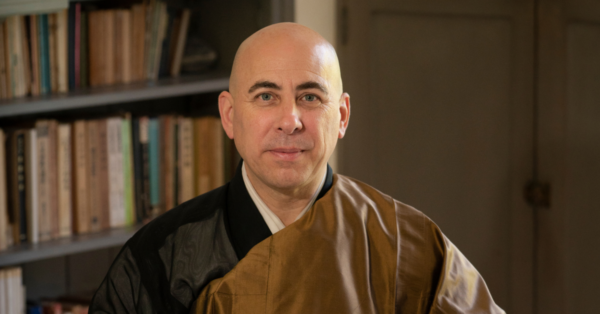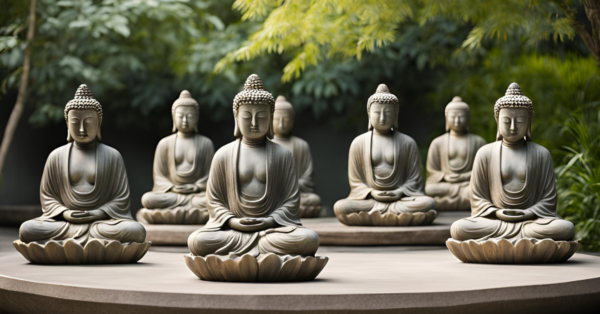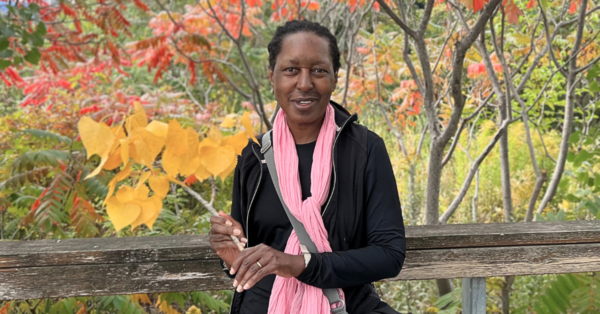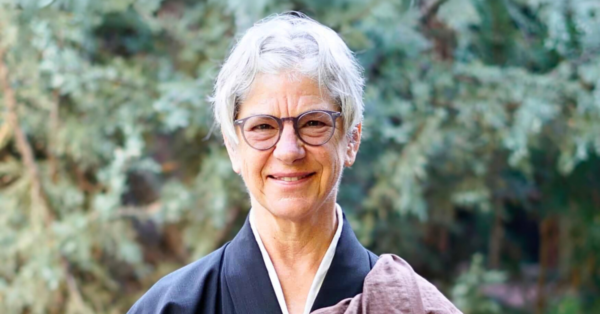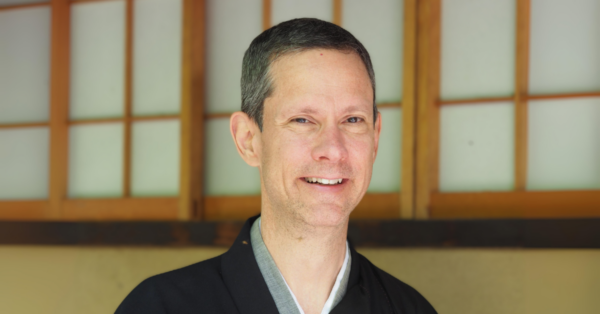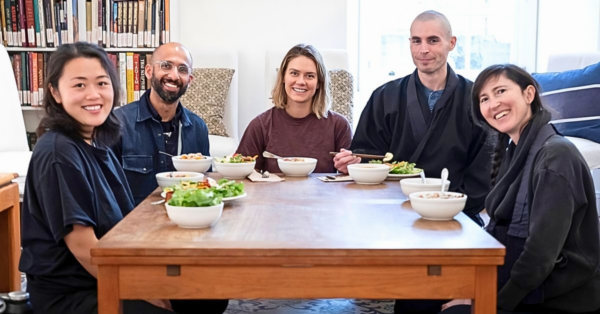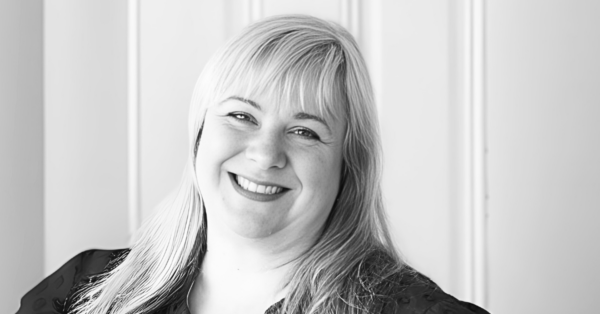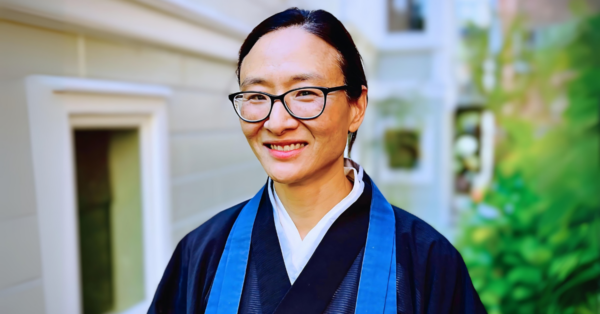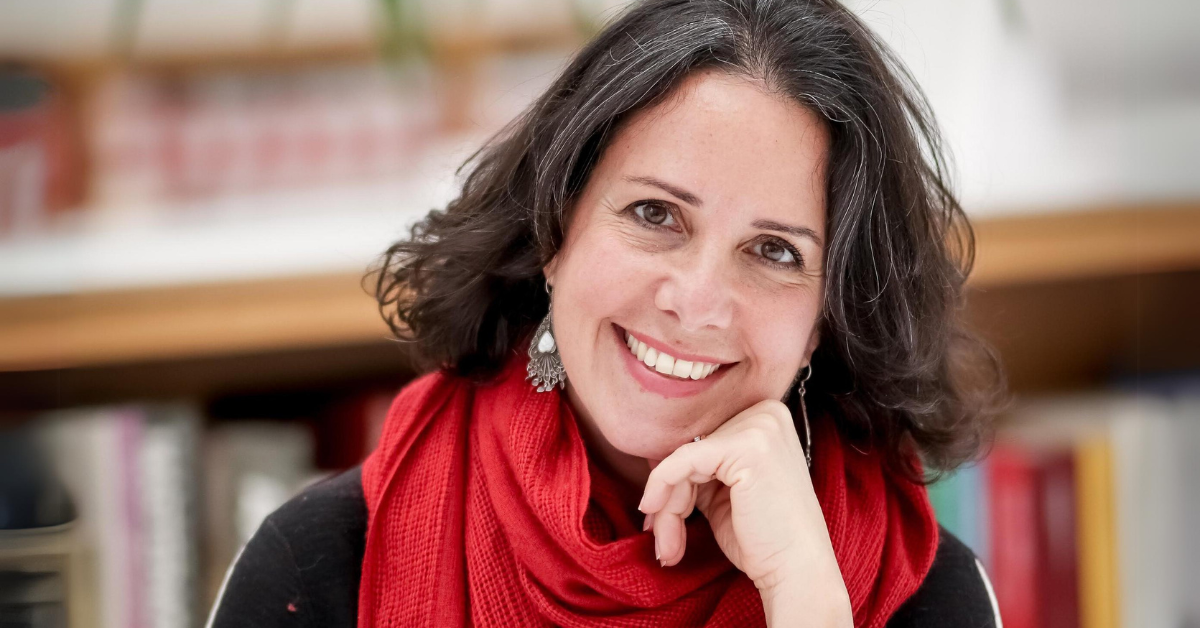
By Tova Green
Vanessa Sasson always loved mountains, though she grew up in Montreal. As a little girl, she had a poster of snow-capped mountains on her wall. When she was twenty-two, a recent college graduate on her way to work in Japan, she had a stopover in Nepal and saw the Himalayas for the first time. She didn’t get back on the plane; instead, she left her suitcase full of suits and stockings in Kathmandu and wandered around Nepal for a year. “I fell in love with the mountains. I was so happy there.” Now, in her role as a college professor, she brings students to Nepal every two years.
Vanessa Sasson is a professor of Religious Studies in the Liberal Arts Department of Marianopolis College in Montreal and the author of the novel Yasodhara and the Buddha (Bloomsbury 2021). Most recently, she authored The Gathering: A Story of the First Buddhist Women. She and Tova Green will be offering an online program on May 9 from 6–7:30 pm PDT, discussing The Gathering and its relevance to contemporary women. Recently, Tova interviewed Vanessa about her path to becoming a professor and a novelist.
In college, Vanessa majored in political philosophy, but felt adrift. “Nothing captured my interest. I barely studied.” During her year in Nepal, Vanessa went to Dharamsala in India for a few weeks, saw the Dalai Lama, and met him at his residence. “That encounter was life-changing. I remember every detail of that day. Many people came to see the Dalai Lama. Tibetans met with him first, then tourists. When it was my turn, I couldn’t say a word. I just stared at him. After I left the meeting I cried and said I wanted to be as kind as he was. I was shaken. There was something to aspire to.”
Later, the Dalai Lama came to Montreal and Vanessa had a chance to meet him again and talk to him. “I wanted him to be proud of me. I’ve always had a strong feeling that my teachers are important to me; I’ve looked up to those who are older. Now they are aging and dying and I will have to take their place. It’s like being on an escalator, moving up as some people step off. Now I’m the teacher. I find this quite humbling.”
Vanessa teaches religious studies at Marianopolis College. She teaches many religious texts, including the Bible and Koran, and many religions, including Hinduism and Buddhism.
After writing several academic books, Vanessa was drawn to write two novels about early Buddhist women. “There is something predictable about academic writing. It’s like looking at things through a microscope, like being a dance critic who never dances. I wondered what it would look like if I participated and entered the story instead of looking at it from outside and being separate.” She had never done any creative writing before her first novel about Yasodhara.
None of Vanessa’s academic teachers did what she did. “Buddhist Studies is very classical, conservative, traditional, and patriarchal, like an Old Boys’ Club. More men are cited and published than women. When I changed direction and chose to write a novel, I worried about how my colleagues might respond.” But Vanessa’s colleagues surprised her. Scholars met her with a warm curiosity, not the condemnation or critique she had expected. She has experienced a bubbling up of good energy. “The field of Buddhist Studies is opening up and changing. The door is starting to open.”
“I wanted to honor certain stories and ways of being in the world. I’m not alone. I’ve walked into a moment. Let’s do more. The conversation has to get bigger. That’s how communities get better. I need to use my privilege as an educated person to do what I can do.”


